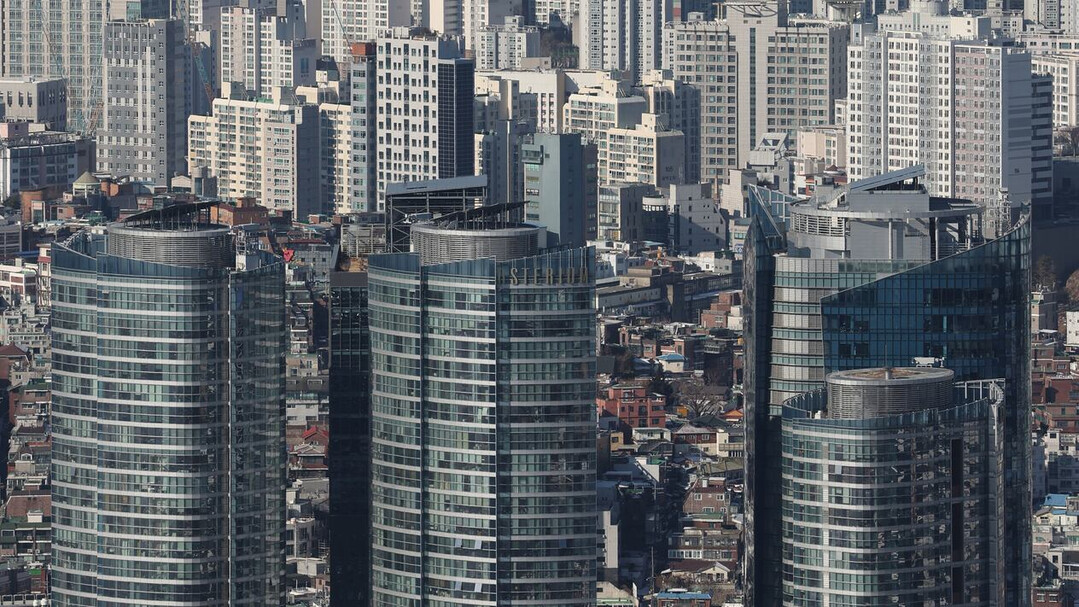
Seoul – After a period of stagnation due to complex domestic issues, Seoul's apartment prices have recently shown signs of recovery, particularly in the Gangnam area. According to the 'Weekly National Apartment Price Trends' report by the Korea Real Estate Board, Seoul's apartment sales prices rose by 0.02% in the first week of February, indicating a slight upward trend. Among the districts, Songpa-gu showed the most significant increase (0.13%).
The anticipation of the lifting of land transaction permit zones is considered a significant factor in this rise. Seoul Mayor Oh Se-hoon expressed his intention to review the 'full-scale easing' of these zones at an official event earlier this year. On February 12th, the Seoul Metropolitan Government announced the lifting of land transaction permit zones for apartments in the International Exchange Complex district, including Samsung-dong, Daechi-dong, and Cheongdam-dong in Gangnam-gu, and Jamsil-dong in Songpa-gu. This announcement is expected to further increase apartment prices in the Gangnam area.
Impact of Land Transaction Permit Zones
Land transaction permit zones are designated by the Ministry of Land, Infrastructure, and Transport or the heads of local governments (metropolitan mayors and governors) in areas where there are concerns about real estate speculation or where development is in progress. Within these zones, any land transaction exceeding a certain area requires prior permission from the head of the relevant district office, with a clear statement of the purpose of land use. Unauthorized transactions can result in imprisonment or fines.
In land transaction permit zones, only parties who have obtained land transaction permits before the real estate transaction can enter into transaction contracts, and a permit certificate must be attached when applying for registration. Even after concluding a transaction contract, the land must be used for a certain period only for the purpose permitted. For residential purposes, it can only be used for actual residence for two years. Sale or lease is prohibited during this period. Therefore, gap investments, such as inheriting lease contracts or immediately leasing after purchase, are not allowed in land transaction permit zone apartments.
Currently, land transaction permit zones in Seoul are widely designated in areas with popular large-scale apartment complexes, such as Gangnam-gu and Songpa-gu. These designations have a significant impact on apartment transactions, as well as sale and lease prices in these areas. If these areas are deregulated, gap investments will become possible, increasing both the number of properties for sale and potential buyers. In fact, due to the anticipation of the recent lifting of land transaction permit zones, there have been reports of a decrease in properties for sale and new high prices in Daechi-dong and Jamsil-dong.
Price Differences Based on Designation
The impact of the Seoul Metropolitan Government's announcement on the lifting of land transaction permit zones on apartment prices in the relevant areas is expected to be significant, as it fundamentally restricts transactions. Comparing the price trends of properties of the same size in Samsung-dong (included in the land transaction permit zone) and Dogok-dong (not included) in Gangnam-gu, we can see the following:
The sales prices of Samsung Hillstate 1st (1,144 units, completed in 2009) 84㎡ and Dogok Rexle (3,002 units, completed in 2006) 84㎡ were similar before Samsung-dong was designated as a land transaction permit zone. However, the prices of the two complexes have continuously diverged since Samsung-dong was designated as a land transaction permit zone on June 23, 2020.
The situation is similar in Songpa-gu. Trillium (3,696 units, completed in 2007) 84㎡ in Jamsil-dong, which is located in the land transaction permit zone, was traded at 2,555 million won in November last year, while Parkrio (6,864 units, completed in 2008) 84㎡ in Sincheon-dong, which is adjacent to Trillium but not included in the land transaction permit zone, was traded at 2,570 million won.
Based on these examples, it is expected that Samsung-dong, Daechi-dong, and Cheongdam-dong in Gangnam-gu, and Jamsil-dong in Songpa-gu, which have been relatively restricted in price increases due to the land transaction permit zone designation, will see an increase in transactions and further rise in asking prices. On the other hand, large-scale apartment reconstruction areas in Gangnam (Apgujeong-dong, Yeouido, Mokdong), which were excluded from this deregulation, are expected to see a temporary decline in the upward trend due to disappointment over the exclusion from the land transaction permit zone lifting.
The Seoul Metropolitan Government's decision to shift to a phased easing approach seems to be driven by the burden of potentially triggering a rise in Seoul's housing prices, starting with Gangnam, due to the lifting of land transaction permit zones amidst potentially chaotic political situation. It remains to be seen whether the Seoul Metropolitan Government's partial lifting of land transaction permit zones will lead to changes in the apartment price rankings in the Gangnam area.
[Copyright (c) Global Economic Times. All Rights Reserved.]






























